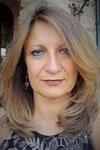Paola Bertucci
My work focuses on early modern science, technology, and medicine in Europe, between the seventeenth and eighteenth centuries. I have published on artisanal cultures and the politics of encyclopedism in Old Regime France, on the social history of experimental physics in Italy and England, on the silk industry and industrial espionage within Europe and across the Atlantic. Most recently, my research and publications have addressed the intersections between HSTM and the history of craft and labor. My goal is to make science, medicine, and technology more central in historical studies and to give voice to marginalized historical actors. For this reason, my research pays close attention to material and visual sources, which offer insights into actors and practices often invisible in textual accounts.
My most recent book, Artisanal Enlightenment: Science and the Mechanical Arts in Old Regime France (Yale University Press, 2017), argues for the centrality of the mechanical arts and the world of making in the French Enlightenment. With a radical shift of historical actors, it foregrounds the figure of the artiste, a period term for learned artisans who defined themselves in contrast to savants and routine-bound craftsmen. I show that early encyclopedic projects on the arts and crafts – which paved the way to Diderot’s and d’Alembert’s Encyclopédie – were information gathering activities designed to support the colonial and commercial schemes of the French state. I place the artiste as a central actor in these efforts and, more generally, in the changing landscape of France’s political economy. Artisanal Enlightenment was awarded the 2019 Louis Gottschalk prize for best book in eighteenth-century studies by the American Society for Eihteenth-Century Studies.
My first book, Viaggio nel paese delle meraviglie. Scienza e curiosità nell’Italia del Settecento (A Journey in the Land of Marvels: Science and Curiosity in Eighteenth-Century Italy, 2007) is a study of the social spaces in which eighteenth-century electrical science flourished in Italy.
My third book, In the Land of Marvels. Science, Fabricated Realities, and Industrial Espionage in the Age of the Grand Tour, forthcoming with Johns Hopkins University Press, explores the relationship between science and eighteenth-century information cultures through the lens a medical controversy and its life on the printed page. I show that reputed experimenters and academicians, along with travel writers, eagerly manipulated facts to create fabricated realities. These fabrications in print, just like fake news circulating in the cybersphere, had real life effects: they secured or started careers, promoted new medical treatments, spread long-lasting stereotypes, and created imagined pasts.
I have been active in bringing the history of science to the broader public. Betweeen 2004 and 2007 I collaborated on the renovation of the Museum of the History of Science in Florence, now Galileo Museum, where I curated two permanent galleries: The Spectacle of Science and Science at Home. I am currently working on the first History of Science and Technology Gallery at Yale, to open in the Peabody Museum in 2024, and I am the co-curator of Crafting Worldviews. European Instruments of Art and Science a temporary exhibition at the Yale Art Gallery that will open on February 17, 2023.
My work has been acknowledged with the 2019 Louis Gottschalk prize for best book in eighteenth-century studies, the 2016 Margaret W. Rossiter Prize for best article on the history of women in science awarded by the History of Science Society, and the 2015 Clifford Prize for best article in 18th-century studies awarded by the American Society for Eighteenth Century Studies. In 2012 I received the Poorvu Family Award for Interdisciplinary Teaching from Yale College.
I currently serve as the second vice-president for the American Society for Eighteenth Century Studies.
